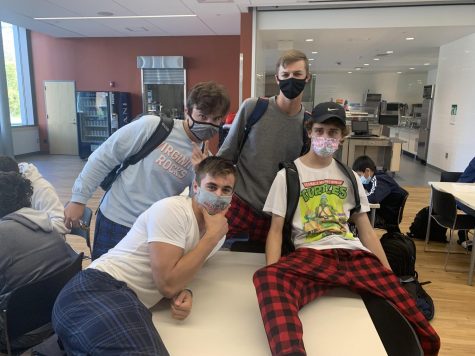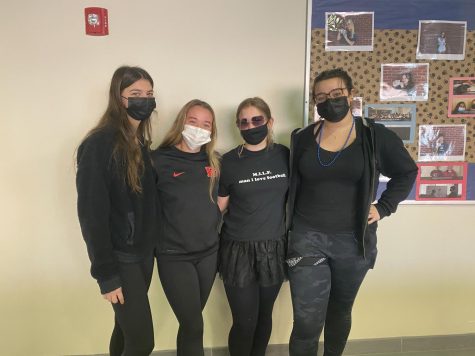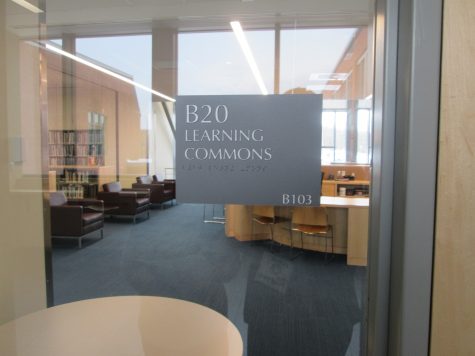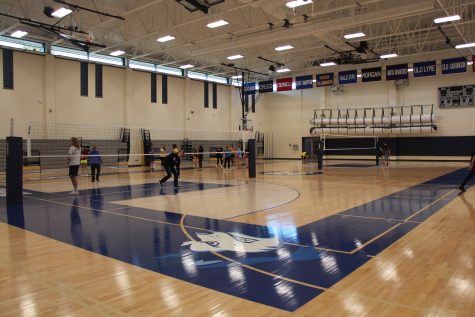Seniors Advice on Applying to College
Different Aspects that go into Choosing a College.
Uconn Husky
There are many factors to consider when choosing a college, whether it is the location or what you’d like to study. As a senior who has now gone through the college process, I have some advice to give.
One consideration when picking which college you’d like to attend is the location. You have to keep in mind where home is. Do you want to be far from home, or would you like to be close to home? If you are on the spectrum of students who would like to go far from home, take into consideration that you will be away from your family for long periods of time. Also, most freshmen don’t get to have their car on campus which means when you get this homesick feeling, you may not have the easiest way of getting home. Also, take into consideration, when moving, the new area around you. When you go to a new town or state, there can be many new stores and facilities that are different from those you encounter in Connecticut. A nice way of getting comfortable in your new surroundings is getting familiar with more than just your school.
I know that if you plan on staying in your home state, it can be overwhelming with all the super popular schools in Connecticut. An advantage to staying close to home is that you know all the spots around your campus.
Many people’s choices can be influenced by the decisions of where their friends are going. It’s very important not to let your friends’ choices influence you. This can cause drama farther along in the year, a dislike for the school because it’s associated with your friends, and it is your life, not your friends. You cannot choose your major based on what your friends plan on doing with their life.
Something else to take into consideration is what size school you’d like to attend. If you feel that you need more of a one on one connection with your teachers, I would recommend going to a smaller school with fewer students. Having fewer students in a smaller environment calls for a better connection between the teachers and their students. Another advantage to a small school is being able to get around campus quicker and easier. You may not have to take a bus or car to get to other classes because you can walk from class to class. A larger school is made for someone who requires that social interaction. They also have bigger classes of students, which means you won’t really be able to get that one-on-one connection with your teachers. A larger campus area means that you will be doing more walking and traveling around campus. It also means that you may have more things to do on campus in between classes.
Before applying, consider what your major may be. Although many students are not certain of their future career path, they should consider what the school has to offer and what their interests are. If you go to college and decide you don’t like your major, you can always change. Make certain your college has options if you do change your mind. Having an idea of what you’d like to do in college may lead you on a more narrow path.
Arguably the most essential part of college is the cost. Everyone knows how expensive college can be. There are many costs that you are going to need to take into consideration: the cost of books, the cost of dorming, the cost of gas if you are commuting to school, the tuition cost, and the food. These costs do add up.
However, there are also many ways to reduce these prices to save money in the long run. One way I have learned is buying second-hand books. Textbooks are almost 100 dollars apiece, and you may need three or four of them. Buying books second-hand reduces the price greatly, and most of the books bought second-hand are in great condition. Sell your books at the end of the semester. Some students are able to sell their second-hand texts for the same price they paid for them. There is also an option to rent books for the semester.
Another way to save money is by applying for scholarships. There are millions of scholarships out there for everything. Whether it just be the town you live in or an amazing art project you’d like to share in-depth, there are always scholarships available. To access these scholarships, you can talk to your guidance counselor, or even look online. There are also websites that give you lists of scholarships. A final tip I have for saving money is applying for financial aid. This is something you tend to do with your parents. Filling out the FAFSA form will give your college’s information on your finances, so the school can determine how much aid you need. Naviance also offers many scholarships on its website.
A final thought that I’d like to give in this article is that GPA and acceptance rates are not a cut-off. There are many schools that have their acceptance rate and GPA online, and that tends to scare a lot of students who may not have that GPA. However, there are many aspects that colleges look at when considering your application. Schools want to see well-rounded students. Not every school gives test scores, transcripts, essays, and extracurriculars t the same weight. Schools may be so impressed with one part of your application that they will not even take into consideration the fact that you don’t meet other “standards”.

Hi, my name is Brittany Chapman, and I'm in the class of 2022. I have been with the PawPrint for two semesters now. Some of my articles include issues...













